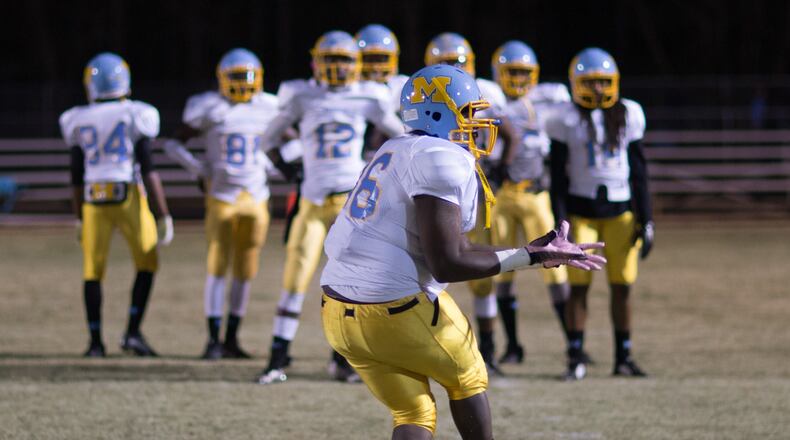Each week, five high school coaches will discuss one issue that affects Georgia high school sports. | Last week: esports
At Issue: The issue of home-schooled student-athletes competing in GHSA-sanctioned sports has prompted serious discussion for several years. It could become more debatable in light of the coronavirus pandemic.
House Bill 163, known as the “Equal Opportunity for Access in Education Act,” was written by Bruce Thompson (R-White) and passed the Georgia Senate in March 2019. It has not yet come to a vote in the Georgia House. The bill sometimes is called the “Tim Tebow Act,” after the former University of Florida quarterback who was home-schooled and allowed to play for his local high school team. More than 20 states have passed similar bills, and the debate in Georgia is not expected to go away any time soon.
Proponents of the bill contend that they pay taxes just like everyone else and their children should be able to compete for local high school programs. Critics of the bill say that the parents have made a decision to home-school their children and should accept the consequences of those choices. They contend parents should not get to pick and choose how and when their children participate in sports by claiming owed access because of tax dollars.
Throw in the COVID-19 pandemic and the equation could change. This begs the question: Will more parents opt for home schooling this fall in an effort to keep their children safe?
And should home-schooled students be allowed to play for local high school teams?
The Skinny: Niketa Battle took over the Mays football head coaching job in 2016 and has amassed a 38-11 record in four seasons. That span included back-to-back 11-2 seasons in 2016-17, when Mays exited the playoffs in the quarterfinals.
Mays lost out in the second round last season, but Battle knows that his Atlanta Public School program is on the rise.
Battle: "The thing about the kids that are being home schooled, it is a very difficult situation. Most of the time, when you're in a public school, you want to have a hands-on type approach throughout the day. I'm not saying that it can't be done, you know, with a kid being at home and you being in school. At least you probably know where that kid is. I think that the basic relationship of a coach getting to know his kid, you'll only really know him as an athlete and not as a student because you never see him interact with the other kids in the hallways. You don't see him interact with other teachers, and you don't know if he can take classroom instruction.
“A lot of times, coaches want to know the whole gamut ... what type of student is this? Can he get along well with others in classrooms? So in that aspect, home-schooling might hinder that relationship and the kid’s ability to possibly go on and play at the next level. But a lot of political-type situations take place in high school athletics, so you might not know how well a kid going to be prepared to go from being home-schooled to go to a college atmosphere where its very different. As a college athlete, you are up at 6 a.m. and asleep early. As a home-schooled athlete, you might not be able to hit that on-off switch like you’ll have to in college.
“I can’t say I’m a proponent of it, and I can’t say I am against it. Right now, I am neutral to it because I haven’t seen enough of the situations to really be able to judge. But you look at what we are in now, all of our kids are home-schoolers right now. I don’t know how long this pandemic will last, and there isn’t a vaccine yet, so this is life for us right now. This might be the new-wave of it.”
AT ISSUE: Home-schoolers’ eligibility
• Robin Hines, GHSA executive director
• Niketa Battle, Mays football coach
• Kurt Hitzeman, Carrollton golf coach
• Scott Snyder, Westminster soccer coach
• Jason Carrera, Meadowcreek football coach
» MORE: Previous topics
About the Author
The Latest
Featured

